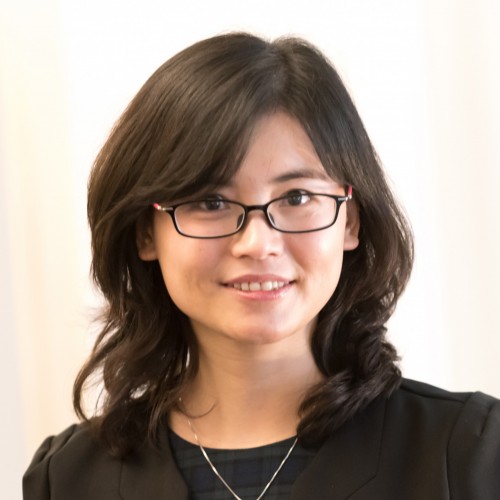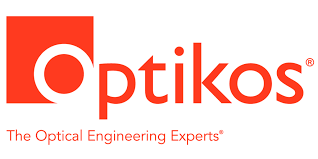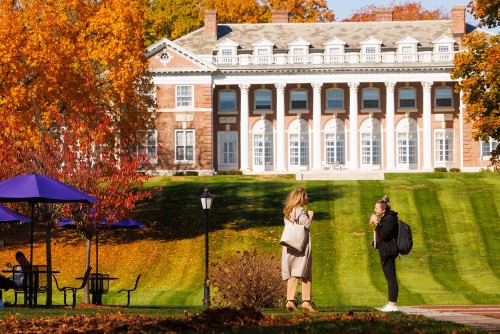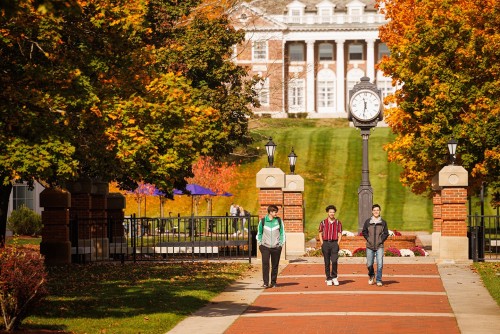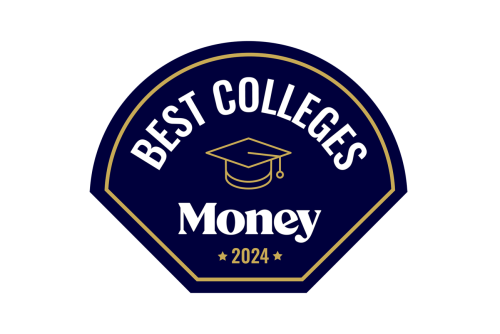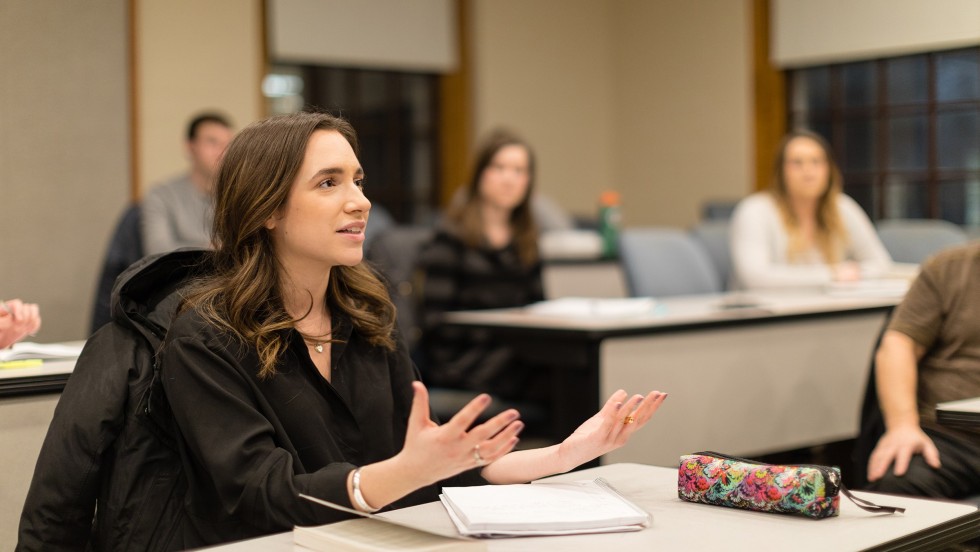Photonics Major & Minor
Stonehill is one of the few colleges in the U.S. to offer an undergraduate Photonics major. The degree positions students for success in areas that include physics, electrical engineering, biomedical optics and medicine.
Positioned for Success in Rapidly Expanding Field
Photonics is the science and technology of light-based devices (lasers, optical sensors, optical communication systems, etc.) and light-based methods for measurement and sensing. The bachelor of arts major and minor in Photonics are intended primarily for students interested in science and engineering at the heart of photonics.
The field of photonics is rapidly expanding, with applications ranging from applied fields like telecommunication, autonomous driving vehicles, cloud computing, big data, smart mobile, Internet of Things devices, chemical and biological sensing, manufacturing, medical diagnostics and cryptography to purely scientific advances in chemistry, biology and physics.
Why Stonehill?
- Interdisciplinary approach emphasizes hands-on practice
- State-of-the-art lab with authentic equipment used in industry – including a femtosecond laser
- Increased marketability in other technical fields, e.g. robotics, electronics, and materials
- An opportunity to be part of a new degree program not often found at primarily undergraduate institutions
- Industry connections that provide students the chance to pair with potential employers
Strong Foundation for Graduate Programs
Students completing the Photonics program at Stonehill will also be well-positioned to enter graduate school in a number of areas, including physics, electrical engineering, biomedical optics and medicine. They also have the opportunity to take advantage of Stonehill's cooperative agreement with the Institute of Optics at the University of Rochester, in which Stonehill students who satisfy certain criteria receive automatic acceptance to Rochester's Optics Master’s Degree Program.
Using light to manipulate information, integrated photonics will revolutionize data storage and transfer—similar to how integrated circuits ushered us into the Internet age.
Stonehill Undergraduate Research Experience
The Stonehill Undergraduate Research Experience (SURE) is an opportunity for students who have completed their first year at Stonehill to perform full-time, high-quality research over the summer months under the guidance of an expert faculty researcher. A student in the SURE program spends 8-10 weeks of the summer collaborating with a professor - and sometimes other students - on an original research project that fits into the faculty member’s overall research program.
The experience includes postgraduate career seminars, program-wide outings, weekly lunches, and a student poster session in the fall. SURE students generally live on campus and receive a stipend for their summer work.
Career Development Resources for Students
The Stonehill Career Development Center offers extensive assistance to students in academic degree and career decisions; applying to graduate school; and finding internships, mentors and postgraduate service opportunities.
Recent Photonics Internship Opportunities
Recent Accolades
Organizations involved in assessing U.S. colleges and universities continually cite Stonehill as being among the best in the nation when it comes to value, outcomes and a commitment to making the world a better place. See full list of accolades.
-
U.S. News Ranks Stonehill in the Top 5% Nationally
After assessing U.S. colleges and universities based on 17 measures of academic quality and graduate outcomes, U.S. News & World Report ranked Stonehill No. 73 in the Best Value category out of 1,500 colleges, while also moving up to No. 83 among National Liberal Arts Colleges.
-
Wall Street Journal 2025 Rankings Place Stonehill Among Best Colleges in U.S.
Stonehill College has been recognized again this year by The Wall Street Journal for the value it provides students, especially in the areas of career preparation and character development.
-
Money Ranks Stonehill Among Best U.S. Colleges in 2024
Money’s 2024 Best U.S. Colleges research shows Stonehill among top 10% nationwide.
Sample Courses
Introduction to Optics
Introduction to Photonics
Optics and Photonics Lab
Semiconductor Materials and Devices
Integrated Photonics
Outside Partnerships & Special Programs
Save Money: Earn Two Degrees in as Little as Four Years
Contact Information

David S. Simon
